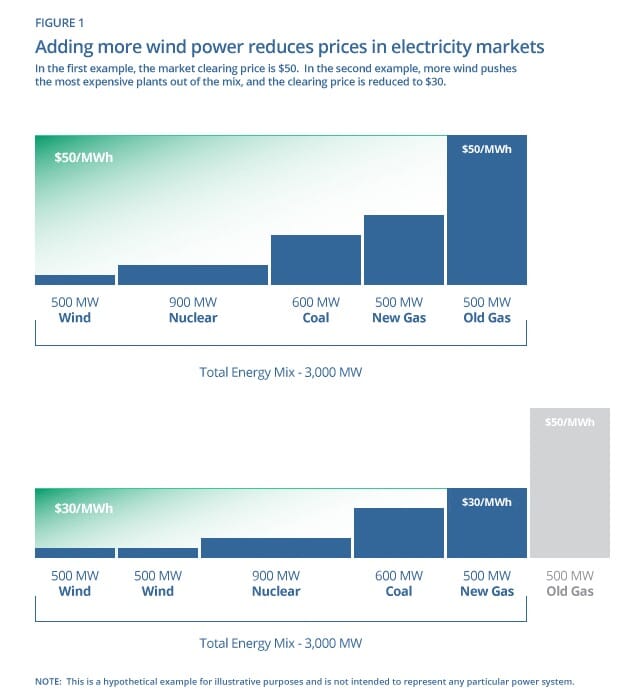Our Economy
Renewable energy means economic security
Supplies of fossil fuels are finite, and 100% of them come from outside Maine. This puts Maine in a vulnerable position, with no control over fluctuating oil and gas prices. Producing wind energy here in Maine helps us gain control over our economic destiny.
Wind power projects create and support jobs in Maine
Nearly all the people hired for wind power related work in Maine are from Maine - including more than 600 jobs in 2008 and 2009, years of severe economic distress. The well-paying operations and maintenance jobs created at wind projects provide benefits, cannot be shipped overseas, and make a real difference for local families and communities.
Wind power benefits a wide range of local Maine businesses
Wind energy in Maine is strengthening communities around the state. In addition to protecting our air and water, creating jobs and reducing local taxes, wind energy has meant new revenue for more than 760 Maine businesses across many sectors of the economy.
Government support for renewable energy is 75X LOWER than for fossil fuels
Fossil energy has been receiving some form of government support for more than 100 years. This makes the cumulative totals for the oil and gas industry much higher than renewables, which have been receiving government support for only a few decades. Despite being mature industries making record profits, fossil energy continues to receive millions in federal dollars. More importantly, renewables like wind power actually receive far less support than did fossil fuels or nuclear energy at a similar point in their development.
Wind power projects attract private investment in Maine’s economy
Wind developers in Maine have spent nearly $1 billion since 2004, leading to new work for 300 Maine businesses. A stable wind power industry results in many additional investments, all of which strengthen the state’s economy, provide tax revenues to local communities, employ hundreds of Mainers, and support small businesses across the state.
Wind power and tourism co-exist
Recreation and tourism thrives near wind power projects in Maine. The Appalachian Trail runs beneath the towers at Mars Hill. Snowmobilers gather at the Stetson Wind Project each year and ride their sleds nearby all winter. Kibby is visible from Sugarloaf and a remote campground on the Chain of Ponds. There is plenty of proof that recreation and tourism continues alongside an emerging wind power industry that is creating jobs and bringing money into our economy.
Wind power development in Maine provides real benefits to local communities
Developers in our state have long been funding local and non-profit projects to benefit Maine residents and the environment. These investment dollars often come as annual payments and have been used to lower local taxes, fund public safety and educational programs in local communities, develop new recreational trails, and conserve land in Maine.
Federal policies supporting wind bring investment and tax revenue to Maine
The U.S. Government provides incentives for wind power development because it is an inexhaustible, clean, safe and reliable method for generating electricity. Every federal dollar spent on a wind power project costs each of Maine’s federal taxpayers 0.01% of a penny, and leverages two dollars in private investment. The investment in infrastructure built here is then taxed annually by the State of Maine. For decades energy has been supported by federal payments. The major difference with wind power is that economic benefits accrue directly to Maine.
Maine wind power is a revenue-producing product
Wind power and other forms of renewable energy are in demand in New England. So, even if we occasionally make more electricity in Maine than we need, the surplus is easily sold, generating revenues that pay Maine salaries and taxes. Wind energy is a sustainable product - no different than Maine blueberries, potatoes, lobsters, trees and scenic places. Much of our economy is based on selling our abundant natural resources in other markets.
Wind power has no impact on property values
Many peer reviewed studies of property sales near wind power projects across the country have found no correlation between wind development and property values.
Adding more wind power reduces energy prices
As more wind power is added, it pushes out older, more expensive energy sources.

